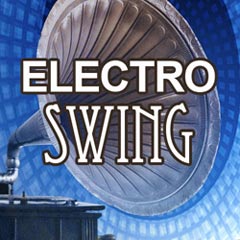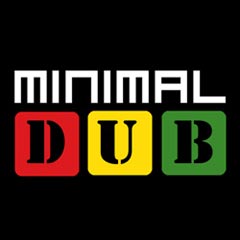Experimental music
ON AIR - PROGRAMMING
The avant-garde is a constant survey of sound, at times an end in and of itself, at others, pushing new genres. Captivatingly encouraging us to expand our universe of sound. Experimental music leads a valiant vanguard in constant search of new soundscapes. This avant-garde boldly interweaves numerous elements, stirring up regions previously undiscovered by exploring genres unknown and uncultivated. Beyond this, experimental music has the special opportunity to intrigue listeners, broadening our minds with its intoxicating depths of captivating sound. It allows us to take off on a whimsical overture towards mysterious gradations of clashing sonorities and stunningly engaging combinations unexpectedly found along the way, flashing marvellous glimpses all alongours joined exploration and colonizationof the limitless reaches of music yet uncovered. A playlist with the best experimental music songs
Exploring the Boundless Universe of Experimental Music
Music has long been a means of expression, and over time, the boundaries of what constitutes music have been stretched and redefined by pioneers like John Cage, Brian Eno, and Kraftwerk. The result is an exciting, adventurous genre that we know as experimental music. This genre has continued to evolve over the years, with artists constantly pushing the boundaries of sound to create something new and exciting. In this post, we'll take a closer look at experimental music, uncovering its secrets, exploring its vast universe, and introducing you to some of its most notable pioneers.
Experimental music is a catchall term for any kind of music that challenges the conventional norms of composition, timbre, rhythm, and structure. At its core, it is a search for new sounds and ways to arrange them that fly in the face of the conventional structures and formulas that define most music. One of the most exciting things about experimental music is that it is never static and always evolving, making it impossible to define or limit the genre. It is as open and limitless as the musicians and artists who explore it.
One notable aspect of experimental music is that it doesn't shy away from unconventional and often abrasive sounds. Experimental artists have been known to incorporate noise, random found sounds, and unusual percussion instruments, creating music that is not only fresh but also jarring, challenging, beautiful, and disturbing. Listeners are constantly surprised by the unique sounds and styles of experimental music, which can range from ambient and extended techniques to free jazz, modern classical, and even electronic.
At its core, experimental music is an ideal platform for creativity and experimentation, allowing musicians and artists to push their boundaries and express themselves in ways that are not always possible within the confines of more traditional music. Experimental music offers a vast playground for those who seek to create, invent, and innovate, opening up a realm of possibilities that is both exciting and intimidating. With experimentation comes a level of risk that can lead to failure, but it can also lead to the creation of something truly groundbreaking.
Experimental music has also given rise to many sub-genres, each with its own unique sound and identity. Some notable sub-genres include ambient, noise, post-rock, and musique concrète. Each sub-genre offers a different sonic experience, providing listeners with endless opportunities for exploration and discovery. Fans of experimental music are always on the lookout for new and exciting artists to follow, constantly seeking out fresh sounds and new perspectives.
Experimental music is a vibrant and ever-evolving genre that offers an exciting and challenging listening experience. Its limitless and boundary-pushing nature makes it ideal for creative and adventurous listeners who are open to exploring new sounds and musical styles. It is an essential genre for those who seek to broaden their musical horizons and discover new artists who are pushing the boundaries of what music is and can be. So, to all the music lovers out there, come join us on this intriguing journey of experimental music, and let's explore the vast and exciting universe of sound together.
Exploring the Boundless Universe of Experimental Music
Music has long been a means of expression, and over time, the boundaries of what constitutes music have been stretched and redefined by pioneers like John Cage, Brian Eno, and Kraftwerk. The result is an exciting, adventurous genre that we know as experimental music. This genre has continued to evolve over the years, with artists constantly pushing the boundaries of sound to create something new and exciting. In this post, we'll take a closer look at experimental music, uncovering its secrets, exploring its vast universe, and introducing you to some of its most notable pioneers.
Experimental music is a catchall term for any kind of music that challenges the conventional norms of composition, timbre, rhythm, and structure. At its core, it is a search for new sounds and ways to arrange them that fly in the face of the conventional structures and formulas that define most music. One of the most exciting things about experimental music is that it is never static and always evolving, making it impossible to define or limit the genre. It is as open and limitless as the musicians and artists who explore it.
One notable aspect of experimental music is that it doesn't shy away from unconventional and often abrasive sounds. Experimental artists have been known to incorporate noise, random found sounds, and unusual percussion instruments, creating music that is not only fresh but also jarring, challenging, beautiful, and disturbing. Listeners are constantly surprised by the unique sounds and styles of experimental music, which can range from ambient and extended techniques to free jazz, modern classical, and even electronic.
At its core, experimental music is an ideal platform for creativity and experimentation, allowing musicians and artists to push their boundaries and express themselves in ways that are not always possible within the confines of more traditional music. Experimental music offers a vast playground for those who seek to create, invent, and innovate, opening up a realm of possibilities that is both exciting and intimidating. With experimentation comes a level of risk that can lead to failure, but it can also lead to the creation of something truly groundbreaking.
Experimental music has also given rise to many sub-genres, each with its own unique sound and identity. Some notable sub-genres include ambient, noise, post-rock, and musique concrète. Each sub-genre offers a different sonic experience, providing listeners with endless opportunities for exploration and discovery. Fans of experimental music are always on the lookout for new and exciting artists to follow, constantly seeking out fresh sounds and new perspectives.
Experimental music is a vibrant and ever-evolving genre that offers an exciting and challenging listening experience. Its limitless and boundary-pushing nature makes it ideal for creative and adventurous listeners who are open to exploring new sounds and musical styles. It is an essential genre for those who seek to broaden their musical horizons and discover new artists who are pushing the boundaries of what music is and can be. So, to all the music lovers out there, come join us on this intriguing journey of experimental music, and let's explore the vast and exciting universe of sound together.
What are you thinking about?







